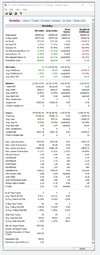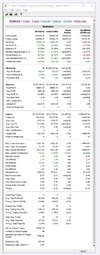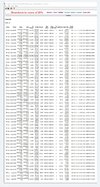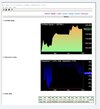- Joined
- 28 December 2013
- Posts
- 6,392
- Reactions
- 24,319
When buying "dips" turn_to_shit
When you've made a "trading or an investing mistake", cut your losses quickly as you can have another go when the market turns around & when the price starts to increase. Selling doesn't mean you can buy it back.
On the flip side
It pays to remember, before you sell a quality company, you're giving up the "long-term growth potential" of your buying decision. At times, deciding what to do next or what to do for the best can be the excruciating side of trading. It's for this very reason you need a solid trading plan "you can stick to".
Skate.
When you've made a "trading or an investing mistake", cut your losses quickly as you can have another go when the market turns around & when the price starts to increase. Selling doesn't mean you can buy it back.
On the flip side
It pays to remember, before you sell a quality company, you're giving up the "long-term growth potential" of your buying decision. At times, deciding what to do next or what to do for the best can be the excruciating side of trading. It's for this very reason you need a solid trading plan "you can stick to".
Skate.




